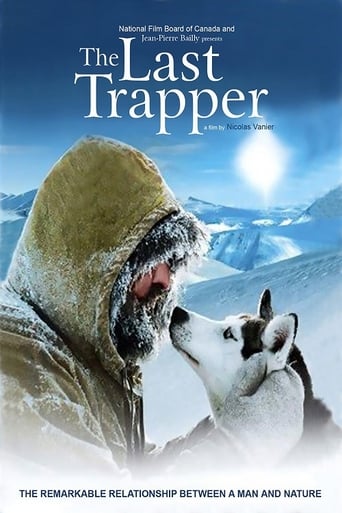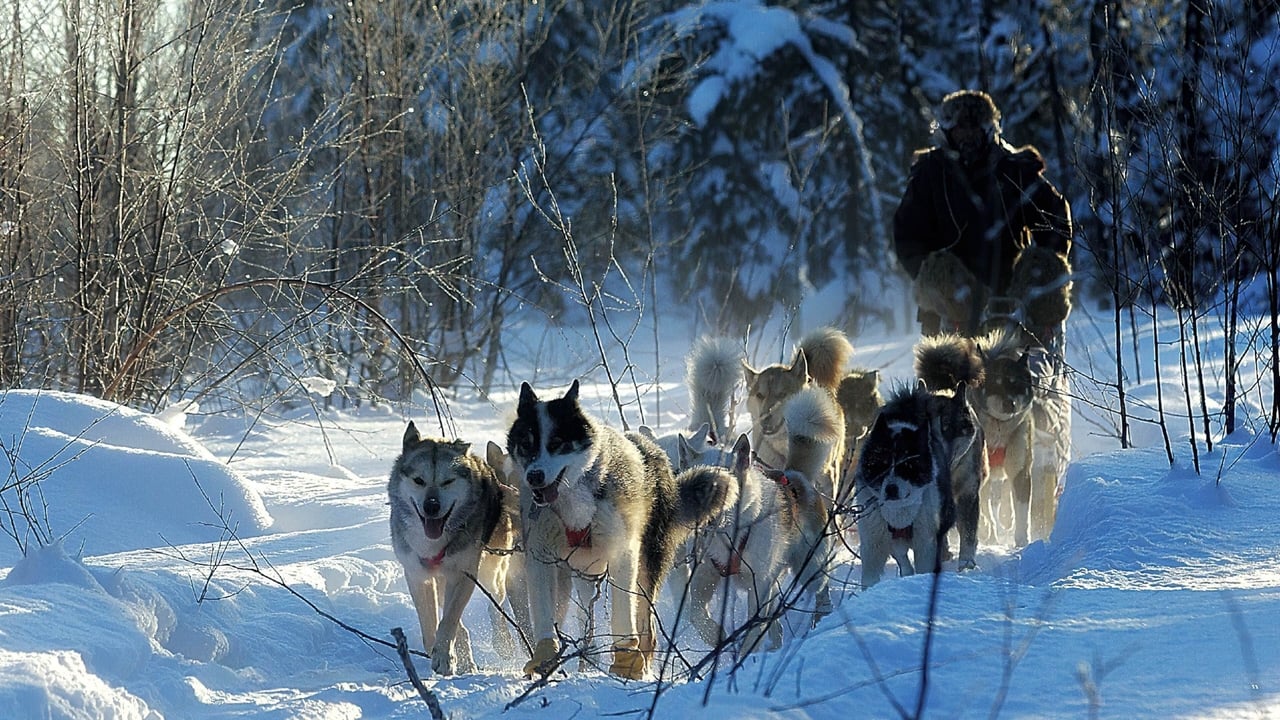Ingo Schwarze
I agree this film is worth viewing for the gorgeous images of nature. However, there are several aspects that make me wonder.How can it happen that the trapper never meets any First Nations people, in particular Northern Athabaskan people, apart from his wife? If that is merely due to low population density, how can it happen that he never thinks or speaks about them, in particular considering how much he's worried about the role of man as part of nature, as a respectful partner of nature, and the danger that man might stop playing that role? There are many First Nations in North America striving hard to live a lifestyle respectful of nature, and they are far from giving up on it, even though their Nations have been under dire pressure from European-style civilization for generations. As opposed to our two trappers in the film, there are many young people among them; actually, First Nations populations in North America tend to be growing today.I can't understand why the film-makers chose to keep that topic dead quiet, in particular considering that more than one First Nation is mentioned during the end credits of the film, so it does appear they used indigenous knowledge and help in making the film. It seems disrespectful to me, and filled with bitter irony, to make a film claiming that nature needs man for its equilibrium, and then represent man as a white trapper, not once mentioning First Nations... Certainly not all white people are evil, and First Nations are not simply "noble savages", but the general tendency is that white hunters have not been all that helpful to the equilibrium of nature in North America, and First Nations have greatly suffered from it. A white trapper using First Nations for nothing except getting a much younger wife to serve him is even worse than the average racist cliché...Besides, i have to support the observation by hsilberstein-1 that the behavior of the trapper makes you wonder. I admit i lived in cities all my life, so i may not be very qualified to judge back-country survival skills, but i have done a lot of alpine mountaineering in my life and i have done a number of multi-day hikes in the outback in Canada, in bear country, some of them solo. In addition to the dubious scenes listed by hsilberstein-1, there are several more where he behaves in ways that even i, with my limited experience, can easily recognize as needlessly asking for trouble. Among the worst is his encounter with the adult brown bear. He surprises a huge Grizzly at close range, and the animal is obviously deeply scared by the man: It gets up on its hind legs and bares his fangs, which a Grizzly usually only does when feeling threatened. What does the trapper do? He utters no word. In such a situation, it is imperative to start speaking (no matter what) in a low, monotonous voice, like when consoling a child. He does not move at all. In such a situation, it is imperative to slowly back away (without turning around and without stumbling). He does not slowly raise his arms to appear larger. He does not pick up his dog, thus risking that it might run away or that it might even make a rush at the bear, or that the bear might choose to try and catch it. Instead, he challenges the already upset bear by staring at him for a considerable time, right into his eyes. He is indeed lucky to get away with that absurd, almost suicidal behavior. Kudos to that bear for keeping his cold blood anyway and doing the reasonable thing, just leaving the scene all the same. Given numerous instances of such strange behavior, i doubt this film has much merit as a documentary.
youAreCrazyDude
While many viewers found the film beautiful and made them love nature, it also should be a warning to us all if our children to see this disappearing beauty. Here is why. We depend on nature and animals to survive. Pollution, eating species into extinction and massacre of environment happens on global scale: sacred and very needed by life on Earth trees are being massacred by human predator. Gold mining, illegal tree cutting, illegal ranching in Amazon already destroyed a lot of sacred trees. Animals' habitat is disappearing with exponential (unbounded) rate. Films: "AMAZON with Bruce Perry", "The End of the Line (2009)". Most vicious predator (human) must learn to stop destroying its own environment. (Aside: the human is most vicious predator because it kills for sports.) While most vicious predator propagates with exponential (unbounded) rate, the nature and animals disappear with exponential rate at the hand of most vicious predator. Most vicious predator must stop unbounded (exponential) reproduction: it leaves no space for healthy environment for most vicious predator and leaves no space for animals. CONSUMPTION is not "cool" anymore. Echo-systems sustain the economies. Economies do not sustain the echo-systems. Bottom-lines and corporations only destroy the nature, environment and animals. In the past, we hoped that our technology would help us to live better lives, but as of today, our technology (better traps, binoculars, nets, better sonars to track our prey, better guns, etc) only leads us to the SIXTH EXTINCTION of all life on the planet, at the hand of the human. If you cannot farm it - do not kill it.
kalatorul
Very beautiful landscapes, nicely filmed, good work of camera crew, and that's all. Guys are fishing dead fishes. The winters are so cold that even the breath has no steam. After a "bath" in cold icy waters, Norman continues his travels as nothing was happened (second time).Firstly the trapper complains about the involvement of man in nature, then after some times he states that without the involvement of the man in nature everything will be a desert. He is assuming himself a quite messianic role.
fechy
An excellent film. After having caught on - it took me a while, up to the middle of it - I leaned back and let the sumptuous landscapes overwhelm me. In the rapidly evolving 'documentary' genre, director and explorer Nicolas Vanier's film inaugurates a new variant which we could tentatively call "self-fiction".As one would expect from an authentic trapper and his wife, dialogue is sparse. At times, the protagonists' embarrassment before the camera is palpable. Many scenes involving the couple seem posed, and the main incident involving Norman's sled breaking through the ice, (the re-enactment of what may or may not be a true episode) is not convincing. Voice-over representing the inner voice is omnipresent. One is left to wonder whether excellent actors would not have played Norman and May Loo more convincingly than they themselves. The documentary character of the movie might have remained partly intact, the director having resorted to constructs several times. Even so, the narrative arc remains fairly shallow.This is a movie without apparent violence. Yet violence is subliminally present: it is, after all, the violence of the logging companies against nature's treasures which trigger the film's central action, Norman's move to less dis-equilibrated territory. One strongly senses the violence of advancing, all-devouring modern society. This film could not be more different from the 'classic' trapper movies like Jeremiah Johnson' .For having succeeded with this nonviolent portrait of violence, and for having dared the climate and returned with such magnificent photography, Le Dernier Trappeur deserves 8/10.


 AD
AD

